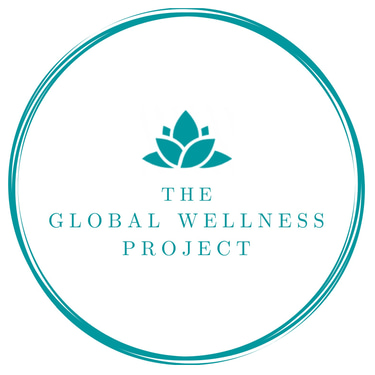Exploring the Global Wellness Economy Monitor 2024 - Part II
Explores emotional resilience, mindfulness, and mental clarity, promoting overall mental health and emotional balance.
HEALINGWELLNESSHEALTH
12/2/20242 min read


Part II: Mental Wellness – Nurturing the Mind for a Balanced Life
Introduction
Mental wellness is an essential pillar of overall well-being, encompassing emotional resilience, cognitive health, and the ability to cope with life’s challenges. The Global Wellness Economy Monitor 2024 highlights mental wellness as one of the fastest-growing sectors in the global wellness economy, valued at $233 billion in 2023. This growth reflects an increasing global recognition of the importance of mental health and its impact on quality of life.
In this article, we explore the facets of mental wellness, the emerging trends driving its significance, and actionable strategies to support mental well-being.
Understanding Mental Wellness
Mental wellness is more than the absence of mental illness; it is an active process of fostering positive mental states, building emotional resilience, and achieving personal goals. It involves cultivating mindfulness, emotional balance, and cognitive clarity.
Core Elements of Mental Wellness
Emotional Resilience
Resilience enables individuals to adapt to stress, trauma, and adversity. According to the WHO, strengthening emotional resilience can significantly reduce the risk of developing mental health conditions.Mindfulness and Meditation
Practices like meditation and mindful breathing enhance focus and reduce stress. Studies have shown that just 10 minutes of mindfulness daily can improve attention and emotional regulation.Social Connections
A robust support system is a cornerstone of mental wellness. Loneliness has been linked to a higher risk of depression and anxiety. Social engagement fosters a sense of belonging and purpose.Cognitive Fitness
Mental exercises, such as puzzles and learning new skills, improve neuroplasticity and protect against cognitive decline.
Emerging Trends in Mental Wellness
Digital Mental Health Tools: Apps like Calm, Headspace, and Talkspace provide accessible solutions for meditation, therapy, and stress management.
Workplace Mental Health Programs: Companies increasingly invest in mental health support for employees, recognizing its impact on productivity.
Holistic Approaches: Integrative therapies combining traditional practices (e.g., yoga, Ayurveda) with modern psychology are gaining traction.
Psychedelic-Assisted Therapy: Emerging research supports the use of psychedelics under clinical supervision for conditions like PTSD and depression.
Global Insights
The Global Wellness Economy Monitor 2024 reports that North America leads in mental wellness spending, driven by high adoption rates of digital tools and therapy services. Meanwhile, Europe and Asia-Pacific are seeing rapid growth in mindfulness practices and corporate wellness initiatives.
Practical Strategies for Mental Wellness
Adopt a Daily Mindfulness Routine: Start your day with a few minutes of deep breathing or meditation to center yourself.
Foster Social Ties: Make time to connect with friends and family. Joining community groups can also provide new avenues for connection.
Exercise Regularly: Physical activity releases endorphins, the body’s natural mood enhancers.
Set Boundaries: Prioritize mental wellness by saying no to commitments that overwhelm you and taking breaks when needed.
Seek Professional Help When Needed: Therapy and counseling are valuable tools for navigating mental health challenges.
The Role of Technology in Mental Wellness
The intersection of technology and mental health has created new opportunities and challenges. While mental wellness apps offer convenience, excessive screen time can be counterproductive. Striking a balance is essential.
Conclusion
Mental wellness is a vital component of a fulfilling life. By fostering mindfulness, resilience, and positive social connections, individuals can thrive mentally and emotionally. The growing emphasis on mental health globally marks a pivotal shift toward a more balanced and inclusive approach to wellness.
Citations
World Health Organization (2020). Mental Health Action Plan 2013–2020. World Health Organization Report. Retrieved from WHO Publications.
Kabat-Zinn, J. (1994). Wherever You Go, There You Are: Mindfulness Meditation in Everyday Life. Hyperion.
American Psychological Association (2023). The Importance of Resilience. Retrieved from APA Resources.
Connect
Explore wellness topics and connect with providers.
Contact Us
Join
info@theglobalwellnessproject.com
© 2024. All rights reserved.
